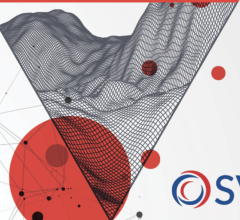
Getty Images
May 13, 2024 — Semaglutide reduces the need for loop diuretic use and dose, and has positive effects on symptoms, physical limitations, and body weight in patients with heart failure with preserved ejection fraction (HFpEF) regardless of diuretic use, according to late breaking research presented today at Heart Failure 2024, a scientific congress of the European Society of Cardiology (ESC).1
HFpEF is a condition in which the heart pumps normally but is too stiff to fill properly, rendering the heart unable to support the body’s need for oxygen-rich blood. The condition is becoming more common as populations age and levels of obesity and sedentary lifestyles rise.2 Symptoms of HFpEF can include shortness of breath – often with exertion – fatigue, and swollen ankles.
The STEP-HFpEF and STEP-HFpEF DM trials evaluated once-weekly semaglutide treatment vs. placebo in patients with obesity-related HFpEF, without and with diabetes, respectively.3,4 Both studies showed a significant improvement with semaglutide for heart failure symptoms, physical limitations, weight loss, and six-minute walk distance compared to placebo. This pre-specified analysis of pooled data from the two trials investigated whether the effects of semaglutide vs. placebo varied according to baseline diuretic use. In addition, the effects of semaglutide vs. placebo on changes in diuretic therapy use and dose during the trials was evaluated.
In both trials, patients had obesity-related HFpEF with left ventricular ejection fraction ≥45%, body mass index ≥30 kg/m2, Kansas City Cardiomyopathy Questionnaire Clinical Summary Score (KCCQ-CSS) <90, evidence of elevated left ventricular filling pressures, structural heart abnormalities plus elevated natriuretic peptides, or recent heart failure hospitalization plus structural abnormalities or ongoing need for diuretic therapy. Patients were randomized 1:1 to once-weekly semaglutide 2.4 mg or placebo for 52 weeks. The dual primary endpoints were change in KCCQ-CSS (a standard measure of heart failure-related symptoms and physical limitations) and percentage change in body weight from baseline to 52 weeks. Patients were stratified by baseline diuretic use (none, non-loop diuretic only, loop diuretic).
A total of 1,145 patients were included (529 in STEP-HFpEF and 616 in STEP-HFpEF DM) from 129 sites across 18 countries in Asia, Europe, North America, and South America. The average age was ~70 years and ~50% were women. At baseline, 220 patients were not receiving diuretics, 223 were receiving non-loop diuretics only, and 702 were receiving loop diuretics.
Regarding the first primary endpoint of change in heart failure-related symptoms and physical limitations from baseline to 52 weeks, semaglutide improved KCCQ-CSS in all diuretic subgroups, but the magnitude of improvement was greater in patients receiving loop diuretics compared to those not on loop diuretics, with an adjusted mean difference vs. placebo of +9.3 (95% confidence interval [CI] +6.5, +12.1) vs. +4.7 points (+1.3, +8.2), respectively; p interaction=0.042.
For the second primary endpoint of percentage change in body weight from baseline to 52 weeks, semaglutide had a consistent beneficial effect across diuretic use categories. The adjusted mean difference vs. placebo ranged from -8.8% (95% CI -10.3, -6.3) to -6.9% (95% CI -9.1, -4.7) from no diuretics to the highest loop diuretic dose category; p interaction=0.39. Semaglutide had consistent beneficial effects on all secondary efficacy endpoints (including six-minute walk distance) across diuretic subgroups (p interaction=0.24-0.92).
Between baseline and 52 weeks, loop diuretic dose decreased by 17% in the semaglutide group vs. a 2.4% increase in the placebo group (p<0.0001). Semaglutide (vs. placebo) was more likely to result in loop diuretic dose reduction (odds ratio [OR] 2.67, 95% CI 1.70, 4.18) and less likely to result in loop diuretic dose increase (OR 0.35, 95% CI 0.23, 0.53); p<0.001 for both. There were fewer serious adverse events with semaglutide vs. placebo across diuretic subgroups.
Study author Dr. Kavita Sharma of Johns Hopkins University School of Medicine, Baltimore, US, said: “Semaglutide improved symptoms, physical limitations and led to greater weight loss across diuretic use categories in patients with HFpEF. In addition, there was evidence of a significant reduction in average loop diuretic dose, a lower likelihood of diuretic treatment escalation, and a greater likelihood of diuretic treatment de-escalation with semaglutide versus placebo – parameters that indicate disease-modifying effects of semaglutide, and are associated with better long-term clinical outcomes in this patient population.”
For more information: www.escardio.org
Find more ESC24 conference coverage here
References and notes
1The STEP-HFpEF analysis will be presented during the session ‘Late Breaking Clinical trials: LVAD, HFpEF and hypertrophic cardiomyopathy’ which takes place on 13 May 2024 at 13:57 WEST in Room 1.
2Borlaug BA, Sharma K, Shah SJ, Ho JE. Heart failure with preserved ejection fraction: JACC Scientific Statement. J Am Coll Cardiol. 2023;81(18):1810–1834.
3Kosiborod MN, Abildstrøm SZ, Borlaug BA, et al. Semaglutide in patients with heart failure with preserved ejection fraction and obesity. N Engl J Med. 2023;389(12):1069–1084.
4Kosiborod MN, Petrie MC, Borlaug BA, et al. Semaglutide in patients with obesity-related heart failure and type 2 diabetes. N Engl J Med. 2024;390(15):1394–1407.


 June 08, 2023
June 08, 2023 

